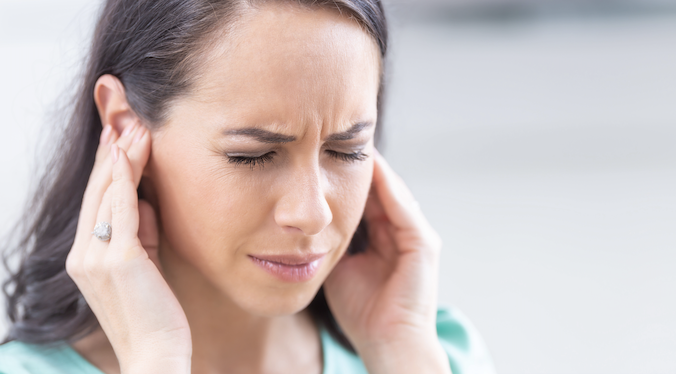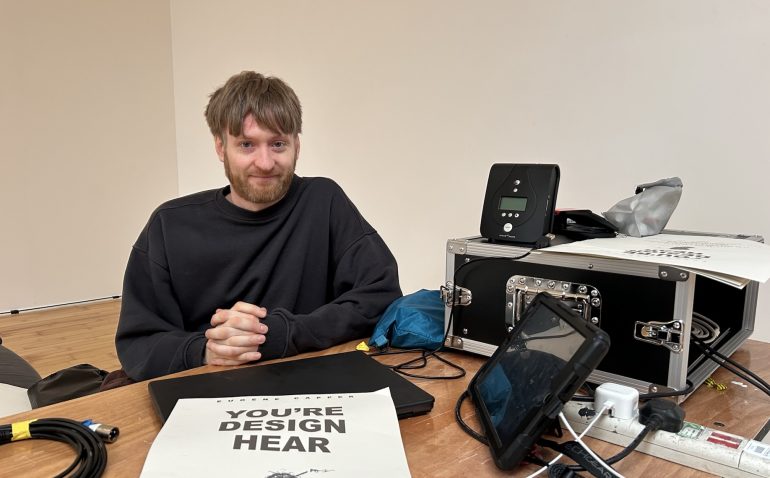A musician has described how he could only sleep for three hours a night while living with a “constant” and “horrible” sound in his ears.
Eugene Capper lives with tinnitus – a condition that affects one in eight UK adults.
He said it tends to occur in his right ear, and sounds like TV static, but with a singular high soundwave amongst it.
It’s horrible.. like a really screechy pure white tone. It’s constant.”
Conventional treatment options don’t seem to work for Eugene, and he felt the need to show people exactly what he experiences.
He first started experiencing symptoms during lockdown, and now spends his time creating compositions using tinnitus noise machines.
He came up with his own exhibition called You’re Design Here, an audio-visual installation at the BayArt Gallery, to raise awareness, which starts on 21 February.
What is tinnitus?

Tinnitus is when you hear sound in your head or ears where there is no corresponding external sound. The sound may be ringing, buzzing, whistling – but no one else can hear it.
More than one million GP consultations for tinnitus are held every year in the UK.
The cause isn’t fully understood, but it is often linked with being exposed to loud environments, hearing loss, stress, anxiety and wax build up.
Treatment options include sound therapy, relaxation techniques, counselling and meditation.
- “I say it’s my annoying best friend”

Reality TV star and presenter Jamie Laing is also someone else who has spoken out about living with tinnitus. He said he “hasn’t heard silence in eight years”.
Appearing on ITV’s Good Morning Britain, he said, “I woke up suddenly and was like, ‘What’s that ringing noise?’ I was looking around the flat forward, the ringing noise, and suddenly realised it was coming inside my head.
He said he finds that tuning out tinnitus and recognising its signs helps reduce its impact.
“I use it as a sign, as a signal, right? So as an alarm. I say it’s my annoying best friend. So when it’s high, when it’s really high, I can hear it all the time. I go, ‘Well, I must be tired, I must be stressed, I must be anxious'”.
“I use [as a] signal I need to have a rest I need to relax and if people start using it in that way, it really helps”.
The NHS advises to seek an appointment with a GP if you have tinnitus regularly or constantly, your tinnitus is getting worse or if it is affecting your sleep or concentration, or is making you feel anxious and depressed.

